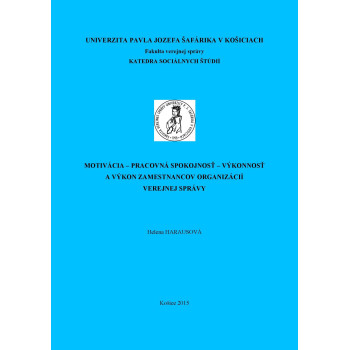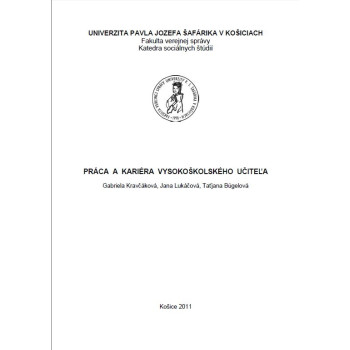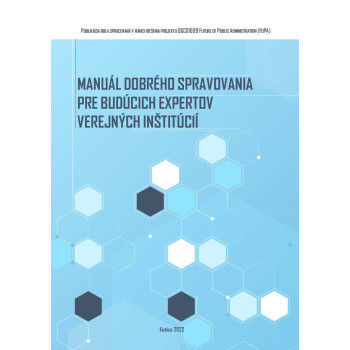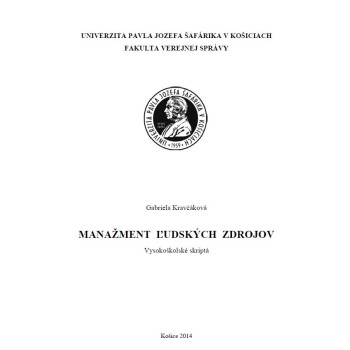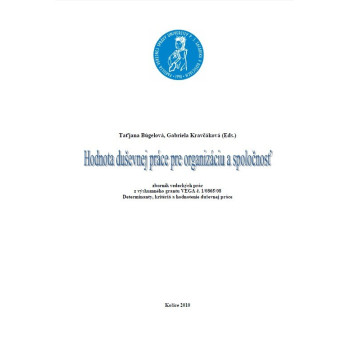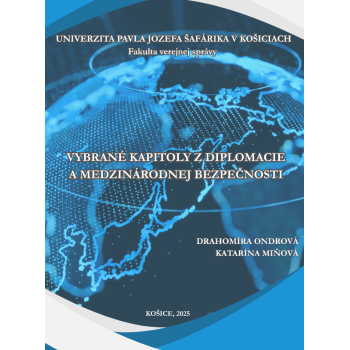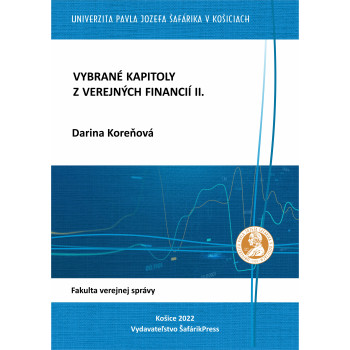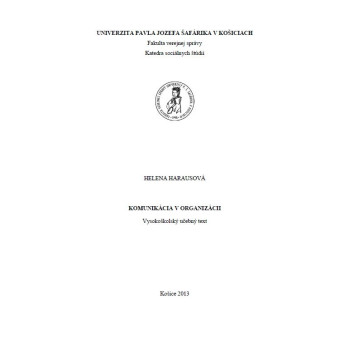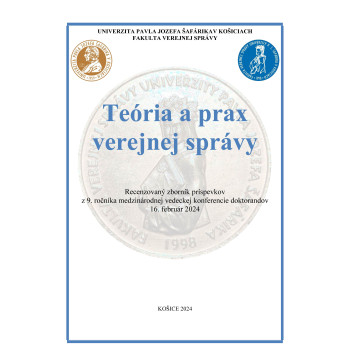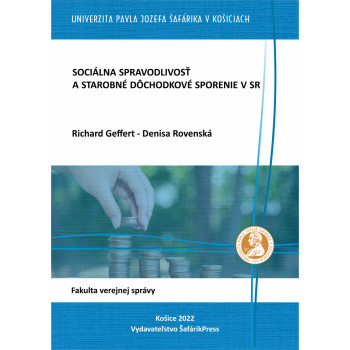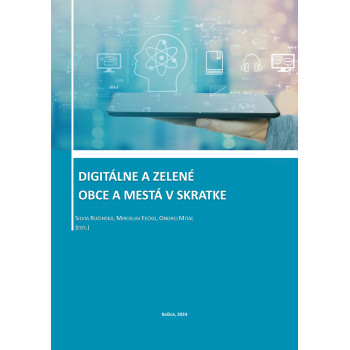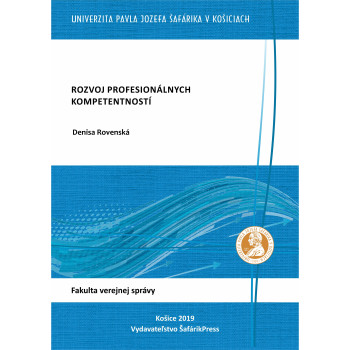
Motivácia – pracovná spokojnosť – výkonnosť a...
E-book
The main objective of the publication was to investigate the impact of motivation and job satisfaction on the performance and performance of employees in public administration organizations. The sub-objectives of the publication were to develop a theoretical background on motivation, job satisfaction, performance and performance and their inter-relationship; to suggest interventions arising from the research findings.
The content of the work can contribute partial findings to the understanding of work motivation and performance. The publication is intended for a circle of professionals who are dealing with the subject - human resource managers and theorists of human resource management. The work consists of two main parts. The first, theoretical part deals with the current state of the problem at home and abroad, with an emphasis on the solution of this problem in public administration. In this part there is also the author's theoretical contribution in the form of a general motivational-performance model and an applied contribution in the form of a proposal of intervention measures: a three-level incentive and motivational model.
The information is drawn from publications and scientific studies by renowned national and international authors. The second part describes the implementation of the research, the statistical evaluation of the obtained data using the methods of descriptive and inductive statistics, the discussion, in which the found results are compared with the results of other domestic and foreign scientific studies.



